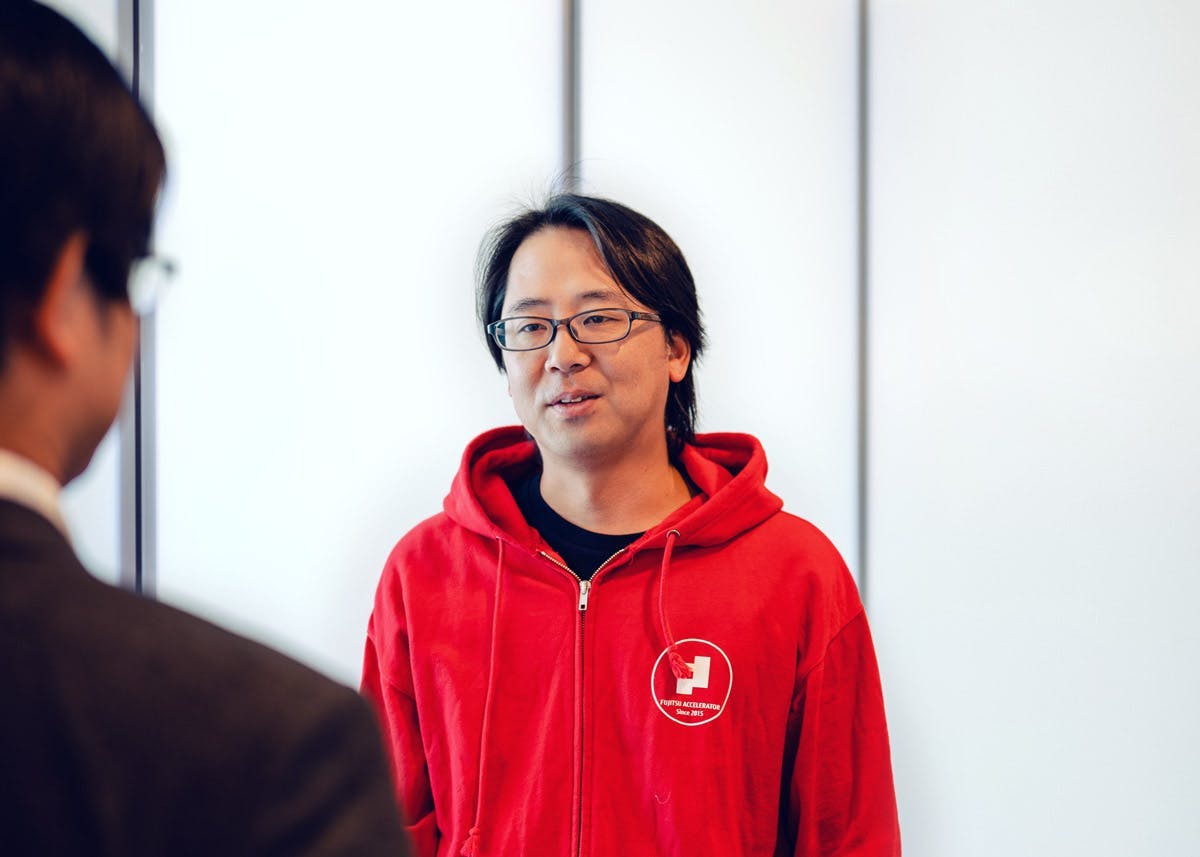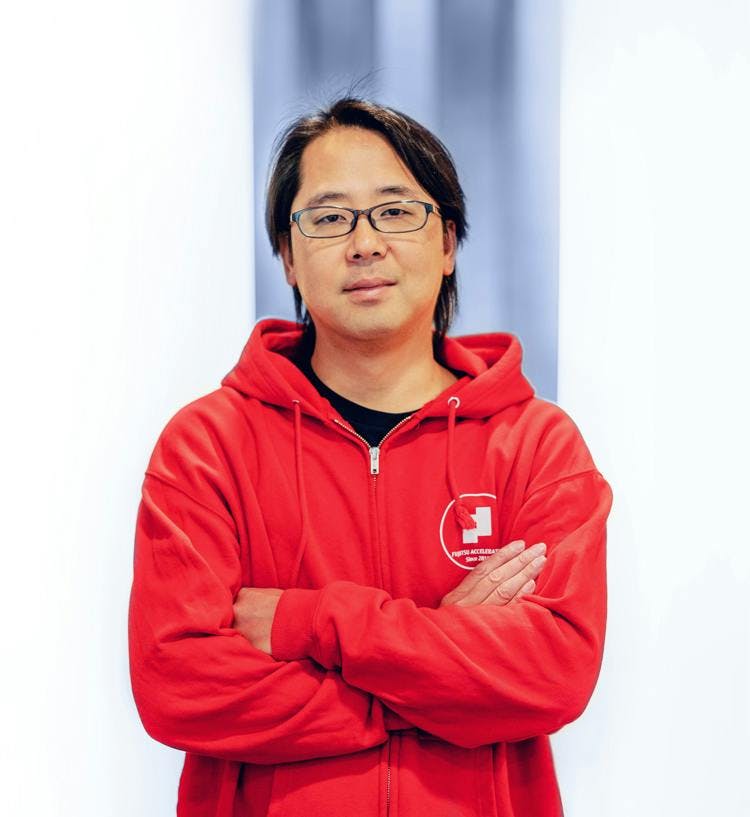Collaborating to become future-proof: An interview with Fujitsu Accelerator’s Hirofumi Ukita
aunched in 2015, the Fujitsu Accelerator aims to provide new values to the world by combining ideas and technologies from innovative startups with existing products and solution-services from Fujitsu Group. The accelerator creates new business opportunities by matching startups with Fujitsu business divisions that may benefit from collaboration and cocreation.

Fujitsu Accelerator, Fujitsu’s internal startup acceleration program, brings startups in as partners and integrates their technologies with the company’s products and services. The accelerator began as a grassroots movement at first, with only four startups selected in the first batch of the program. After a few iterations of the program, many business units within Fujitsu group joined in, hoping to leverage the accelerator’s growing experience working with startups to enhance their existing portfolios of solutions.
After nearly twenty years at Fujitsu, Hirofumi Ukita, head of the Fujitsu Accelerator, is confident in his assertion that “we need to start collaborating with startups or we won’t be around in the future.” Hirofumi has led the Fujitsu Accelerator since April 2019. Prior to taking on this role, he was a founding member of Fujitsu’s cloud business and helped the company expand into the cloud-computing market around the world. As his main sector is cloud computing, he had the chance to work with startups before taking on the mantle of accelerator lead.

Hirofumi Ukita, head of the Fujitsu Accelerator
Over the course of five years, comprising seven cohorts, the Fujitsu Accelerator has gone through over 120 business collaboration trials, taking startups through product development and giving them access to Fujitsu’s sales channels. Hirofumi says that the program is seeking international startups ready and willing to drive business in the Japanese market, especially those that work in sectors that match Fujitsu’s business units.
Startups outside of Japan may feel daunted at the prospect of entering the Japanese market, which is why Hirofumi believes international startups should use Fujitsu Accelerator as a stepping stone into the market and ecosystem.
We need to start collaborating with startups or we won’t be around in the future.
On top of this, Fujitsu is currently in the process of pivoting its business around digital transformation. This being the case, the corporate is gaining a better understanding of the value provided by collaboration with startups. “Our team understands that the best way to become a digital transformation company is to work with startups,” says Hirofumi. “We need to have the speed and cutting edge technology that they offer.”
Hirofumi recommends that founders who think their startup would be a good fit in Japan should simply apply for the Fujitsu Accelerator. If you believe you have a strong technology offering, then joining the program opens you up to a huge segment of the Japanese market.

Fujitsu is a responsible enterprise, so startups should understand that the expectation set for them is to innovate towards purpose and positive impact. Startups hoping to apply to the accelerator should also look to align with Fujitsu’s commitment to the UN sustainable development goals (SDGs). Fujitsu’s wide stakeholder reach includes key players in social entrepreneurship and innovation, so startups should leverage this to address social challenges. “We want to work with startups so we can solve problems together,” says Hirofumi.
We want to work with startups so we can solve problems together.
The next batch of the program is scheduled to open in Summer 2020, with more batches on the way, so keep checking the accelerator’s website for your own chance to join Fujitsu. Once selected, startups team up with the relevant business divisions within the Fujitsu group. For example, from October 2019 to July 2020 twenty-five business units specializing in various sectors from AI to manufacturing and retail are participating in batch eight of the accelerator. “We have commitments from the business unit heads to the accelerator,” says Hirofumi. “The business units are aligned with our program, and they are eager to learn new ideas and adopt the latest technologies from startups.” To ensure that startups and Fujitsu collaborate smoothly, the accelerator team works diligently to match each startup to the right business unit.

Fujitsu promotes the startups via their internal and external media outlets, with other benefits including a customer reach of over 170,000 corporations in the Japanese market and access to distribution channels. The program also provides investment by the Fujitsu Corporate Venture Fund, to further deepen the collaboration between startups and Fujitsu.
Fujitsu Accelerator is communicating to internal stakeholders about how technologies coming from entrepreneurs may be better than what Fujitsu itself is developing. The Japanese market is unique, and decision-making within Japanese corporates can be quite slow. Startups, especially those coming from abroad for acceleration, should learn as much as they can about the Japanese market and business culture.


Most important tips for startups:
Be adaptable.
As willing as corporates are to work with startups, their operational and decision-making speed is still likely slower than that of startups. Be ready to adapt to slower processes and know when to get behind your own technologies when you receive pushback.
Learn all you can about the Japanese market.
The business culture and markets in Japan are unique. If you understand how Japanese markets operate, you’re better positioned to bring your technology solutions to Japan. Companies like Fujitsu have very established ways of doing things based on their home culture.
Commit to the SDGs.
Startups applying for the Fujitsu Accelerator should align with the corporate’s commitment to the SDGs. As a potential player in a responsible enterprise, your startup and technology should further social and/or sustainable development initiatives.
If you have good technology, it will work in Japan.
Although the business culture and markets in Japan are likely different from startups coming from abroad, you should trust in your technology and apply to the accelerator. If your ideas are sound, Fujitsu will help introduce them into the Japanese market.
All photos by: Said Karlsson


